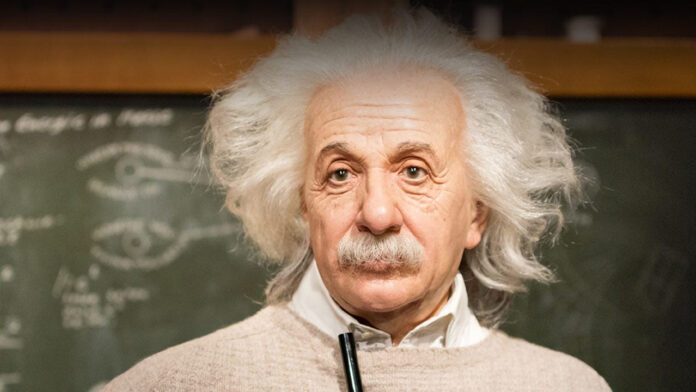Albert Einstein, the quintessential genius whose name has become synonymous with intellectual brilliance and scientific innovation, continues to inspire awe and fascination decades after his passing. Renowned for his revolutionary theories of relativity, Einstein’s contributions to physics and cosmology have reshaped our understanding of the universe. In this article, we delve into the life, work, and enduring legacy of Albert Einstein, uncovering fascinating facts about the man behind the scientific revolution.
Early Life and Education
Childhood Curiosity: Albert Einstein was born on March 14, 1879, in Ulm, Germany. From an early age, he displayed a curious and inquisitive nature, questioning the fundamental laws of nature and engaging in thought experiments that would later shape his groundbreaking theories.
Academic Pursuits: Despite initially struggling in school due to his unconventional thinking and rebellious nature, Einstein excelled in mathematics and physics. He enrolled at the Swiss Federal Institute of Technology (ETH Zurich) and later obtained his doctorate from the University of Zurich, laying the groundwork for his illustrious career in academia.
Theory of Relativity
Special Theory of Relativity: In 1905, Einstein published his paper on the special theory of relativity, which introduced the famous equation E=mc², demonstrating the equivalence of mass and energy. This revolutionary concept challenged classical notions of space, time, and gravity, paving the way for modern physics.
General Theory of Relativity: Building upon his earlier work, Einstein formulated the general theory of relativity, which provided a new understanding of gravity as the curvature of spacetime. This theory predicted phenomena such as gravitational lensing and the existence of black holes, revolutionizing our understanding of the cosmos.
Nobel Prize and Scientific Legacy
Recognition and Honor: In 1921, Einstein was awarded the Nobel Prize in Physics for his discovery of the photoelectric effect, which laid the foundation for the development of quantum mechanics. Despite his groundbreaking contributions to theoretical physics, Einstein’s Nobel Prize was not awarded for his work on relativity.
Enduring Influence: Einstein’s theories of relativity continue to shape modern physics and cosmology, providing the framework for understanding the universe on both the largest and smallest scales. His ideas have inspired generations of scientists and contributed to advancements in technology, from GPS systems to particle accelerators.
Cultural Impact and Humanitarianism
Pop Culture Icon: Beyond his scientific achievements, Einstein became a cultural icon celebrated for his wit, eccentricity, and trademark mustache. His image has been immortalized in countless works of art, literature, and popular media, cementing his status as a symbol of intellectualism and curiosity.
Advocacy for Peace: Einstein was a staunch advocate for peace and social justice, using his platform to speak out against war, racism, and injustice. He was a vocal critic of totalitarianism and authoritarianism, advocating for democratic ideals and international cooperation.
Quirks and Anecdotes
Einstein’s Thought Experiments: Einstein was known for his thought experiments, mental exercises that allowed him to explore complex scientific concepts without the need for elaborate equipment or laboratory experiments. These intuitive insights played a crucial role in the development of his theories.
Einstein’s Unified Field Theory: Throughout his later years, Einstein pursued a unified field theory, a single framework that would unify the forces of nature under a single mathematical formalism. While he made significant progress in this endeavor, a complete theory eluded him until his death.
Einstein’s Final Years
Legacy and Remembrance: Albert Einstein passed away on April 18, 1955, at the age of 76, leaving behind a legacy that continues to inspire and educate. His contributions to science, philosophy, and humanity have earned him a place among the greatest minds in history.
Einstein Archives: Einstein’s personal papers, manuscripts, and correspondence are preserved in the Albert Einstein Archives at the Hebrew University of Jerusalem. These invaluable resources provide insights into Einstein’s life, work, and intellectual journey, ensuring that his legacy endures for future generations.
Conclusion: Honoring Einstein’s Enduring Genius
In conclusion, Albert Einstein’s remarkable intellect, insatiable curiosity, and profound insights into the nature of the universe have left an indelible mark on science and society. From his revolutionary theories of relativity to his advocacy for peace and social justice, Einstein’s legacy transcends the boundaries of time and space, inspiring us to question, explore, and imagine the mysteries of the cosmos. As we celebrate his life and achievements, we honor the enduring genius of Albert Einstein and the boundless potential of the human mind.

